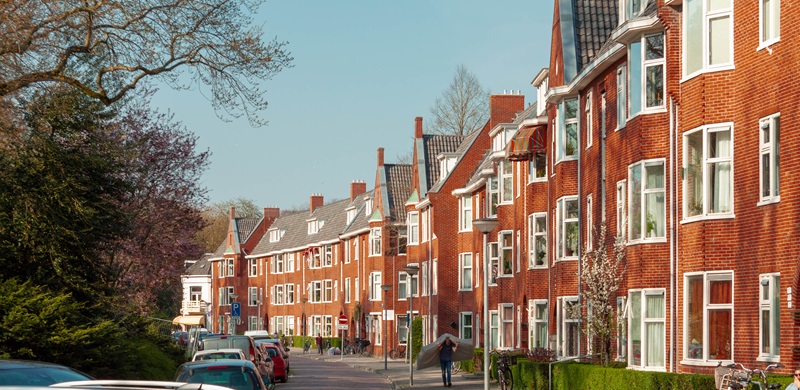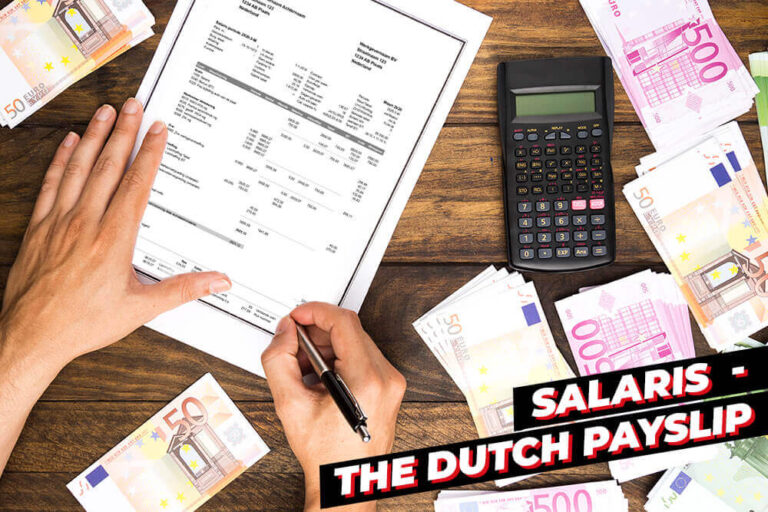When in the Netherlands as a temporary foreign worker, you can opt for accommodation offered by the employment agency or rent a place on your own. However, it’s worth bearing in mind a few things before you decide that renting a flat in the Netherlands is a good option.
Before you leave for the Netherlands
The Netherlands is a very popular destination, one very often chosen by people who choose to live there or travel there to do temporary work. Having said that, finding a job and transport to the desired destination are just some of the important issues that need to be thought of beforehand. One of the most important ones is the question of where to stay.
Choosing a flat where you are currently based is easy because you can make an appointment with the owner of the new property and see it. It’s problematic, however, to find suitable housing and an honest landlord abroad. This is when an employment agency can help. Things you need to know before renting a flat in the Netherlands.
So, how do you go about finding the right place to stay?
When going to work in the Netherlands, you can try to rent a place on your own, opt for the services of a real estate broker, or use agency accommodation. Real estate and employment agencies have the advantage of having competent staff in the area of your interest to check everything so that you don’t have to do it. It is them that will relieve you from a lot of paperwork and other formalities that you would otherwise have to deal with on your own. These include the following:
- Checking the landlord’s title deed.
- Finding out about the actual cost of living in the flat that interests you – including the electricity or water bill.
- Checking whether the photos show the actual dimensions of the flat.
- Finding out other potentially important details – isn’t there a noisy neighbour behind the wall or a person above us notoriously flooding the flat?
What do you need to rent a flat?
Renting a flat in the Netherlands is a procedure that requires the future tenant to have some relevant documents.
To sign the flat rental agreement, in addition to an identity card, an income certificate from the employer is usually required. The document is a testimony to your solvency. The landlord may also ask you to produce your employment contract.
Also, be prepared that the landlord may require you to pay a deposit, so it’s advisable to have some cash ready in case it happens.
What additional charges do you incur when renting a flat in the Netherlands?
As everywhere, also in the Netherlands, you have to be prepared to pay additional rental costs. First of all:
- You will be required to pay a deposit (usually of 1 or 2 rents), which will be returned to you when you move out, provided the flat is in the same condition as when you started your tenancy;
- it will also be necessary to pay a brokerage fee to the estate agency.
What are the prices for renting a flat in the Netherlands?
Flat rental prices in the Netherlands, as in every country and every locality, vary. It all depends on whether you are expected to pay just the rent or also the bills. Undoubtedly, costs will be higher in a larger conurbation and close to the city centre. The same is true of larger flats.
In the Netherlands, monthly rent averages around 500-700 EUR. The highest flat rental prices are in Amsterdam, where the cost of a monthly rental can be as high as 1,500 EUR. A studio flat will cost you between 600 and 1,300 EUR. On top of this cost, you also have to add the bills, which can amount to nearly 180 EUR in a normal month..
Clearly, these aren’t the only monthly expenses. You must also be prepared for the municipal charge for rubbish collection. Each administrative district sets its fee, but on average it’s an expense of 250-330 EUR per year. On top of that, there’s the cost of food or commuting.
When considering a particular flat, it’s advisable that you check in advance how long it would take you to get to work. If you are leaving for Holland with your whole family, it’s also a good idea to look for the nearest schools, clinics, or shops. It’s also worth asking about parking space or whether pets are allowed in the flat.
Accommodation in the Netherlands through an employment agency
The use of agency accommodation is particularly recommended for those who decide to travel to the Netherlands for work for the first time. On the one hand, it means great convenience because of the formalities that the agency will handle on your behalf. On the other hand, you can be certain that the proposed location of the flat is as close as possible to your future workplace.
If longer commutes are required, the employee will receive a special allowance for this. If you choose to rent a flat on your own, you have to expect a higher probability of setbacks related to organising the rental.
Those who have more experience in the Dutch property market and have been working in the Netherlands for a while, usually decide to rent a place to stay on their own. In many cases, it’s connected with the transition to the next phase of employment and the employee’s sense of greater financial security.
What about accommodation arrangements with Carrière – what do they look like?
As far as the Carrière Agency is concerned, we provide our employees with accommodation in comfortable single-family houses, flats, as well as worker’s hotels. If an employee goes to work in the Netherlands with their family, they are informed at the stage of recruitment about the possibilities of shared accommodation. This also applies to people looking for jobs for couples in the Netherlands.
Importantly, free Internet access is provided in most of our locations. All housing made available by Carrière is subject to the standards imposed by SNF, the authority overseeing the standard of accommodation provided to temporary workers.
In the event of any problems with agency accommodation, our employees can count on the support of the Solutions department, responsible for handling accommodation-related requests, among other things.
There is a wide range of housing available in every Dutch city, and the conditions depend entirely on the size of your wallet. Whether you decide that renting a flat in the Netherlands directly from the landlord is the best option for you or that arrangements through a real estate agency or an employment agency are more suitable, it’s recommended that you check everything carefully beforehand to avoid stress and disappointment.
















